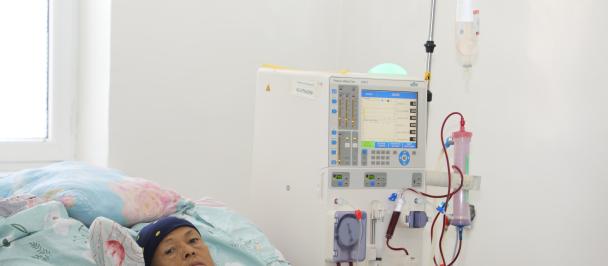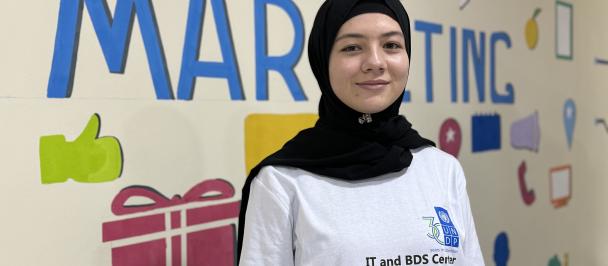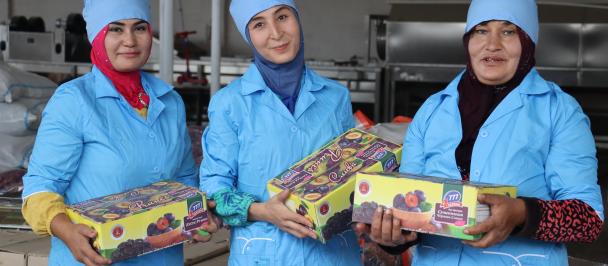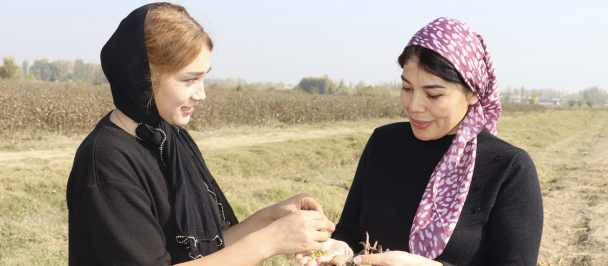The interview was conducted by Rimma Mukhtarova
Public services as a form of support for women – The story of Markhabo
December 13, 2022
Thanks to our joint efforts, public services in Uzbekistan are now available to a greater number of citizens. However, we still need to pay special attention to improving access to public services, especially for those who live in rural areas of the country, in particular, socially vulnerable women. These include women with disabilities, unemployed or in financial insecurity, members of low-income families, or simply women who need legal or government assistance but do not have the knowledge and experience to obtain it.
Our heroine Khudoyorova Markhabo was born in the family of a housewife and a teacher, where, in addition to her, there were two more children. As a child, Markhabo was often sick and grew up quite weak. Sitting at home, she tried to find various activities and entertainment for herself: reading, drawing, embroidering and sewing dresses for her dolls. Markhabo loved sewing so much that since childhood she dreamed of becoming a seamstress, and not just a seamstress, namely sewing curtains and decorating houses, creating comfort in them.
At the age of 7 Markhabo fell ill with a severe form of rheumatism, which led to a complication and caused her limping. Her family treated her with love and care, but some relatives and fellow villagers shunned her. Therefore, she tried to stay in the house as much as possible.
Markhabo finished a middle school but was unable to continue her education and remained in the custody of her parents. After the death of her parents, Markhabo was left without means of livelihood. Not knowing how and where to apply for disability benefits, she never even tried to do it. Women in rural areas, due to ignorance of complex procedures, often face not only general problems of everyday life, but also considerable social and cultural barriers.
“I did not know how to continue my life, I had no education, no job, no purpose in life. I just gave up,” says Markhabo.
There are several factors that may hinder the provision of public services in rural areas, including geographical, social and economic, as well as lack of access to high-quality Internet (approximately 28.9% of the population of Uzbekistan). This particularly limits the ability of already vulnerable individuals to access the assistance they need to protect their rights and live a fulfilling life.
A joint project of the Ministry of Justice, UNDP and the EU is implementing the Women's Advisory Groups (WAG) initiative, which raises awareness among women, older people and people with disabilities in rural areas of Uzbekistan about the possibilities and procedures for obtaining public services, as well as providing the necessary legal and advisory assistance.
In November 2021, a mobile reception of the Women's Advisory Group was organized in the Dekhkanabad district of Kashkadarya region, where Markhabo came for advice. At the meeting, WAG specialists, while talking with Markhobo about her health problems, also revealed other difficulties related to financial issues and the inability to find an appropriate job.
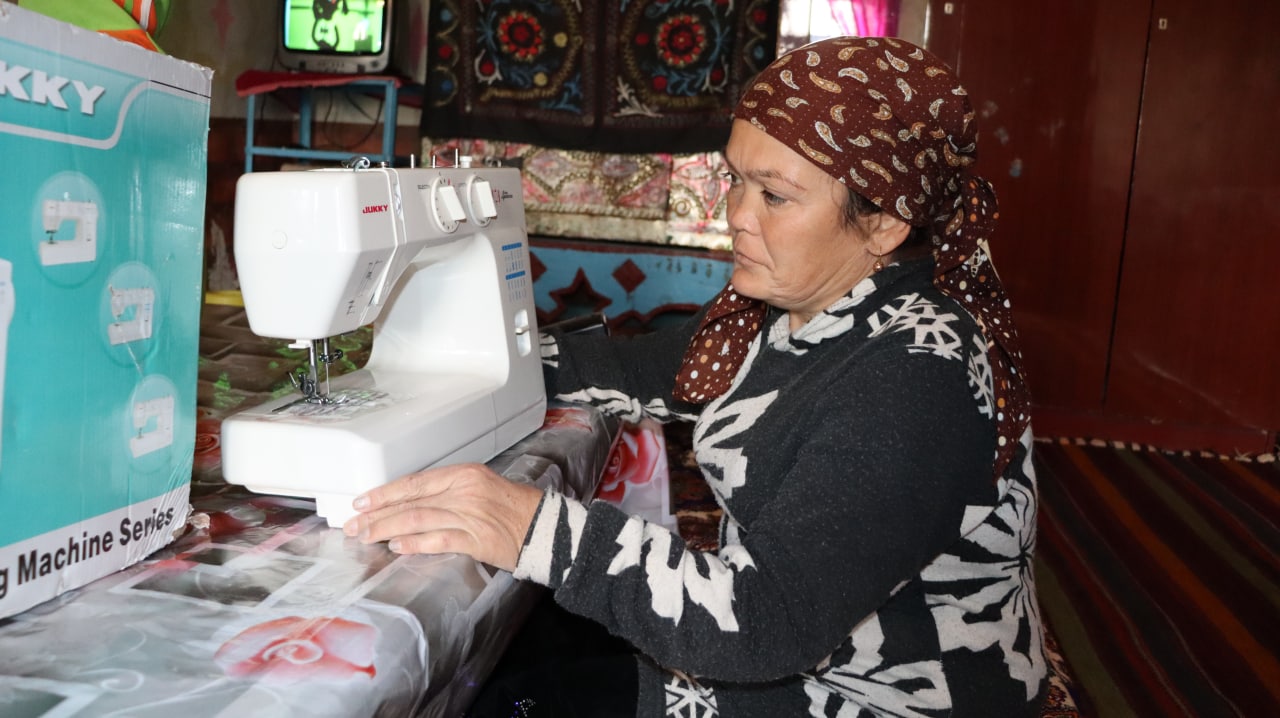
After a meeting with WAG experts, Markhabo was consulted and redirected to the appropriate specialists of the district department of the extra-budgetary Pension Fund, who helped her competently fill out an application for disability and related benefits. And after a while she received a certificate that she was a personwith disabilities of the 2nd group and issued a disability allowance.
Thanks to continuous advisory support, starting from November 2021 to this day, Markhabo's problems found their solutions through joint efforts with partner organizations. She was included in the "Women's Notebook"(Ayollar daftari), which includes the list of women who wish to start and engage in their own entrepreneurial activities and self-employment and who are allocated a subsidy of up to 7 million soums from the Fund for Involving the Population in Entrepreneurship for the purchase of equipment and tools (sewing, weaving, culinary, hairdressing, carpentry, plumbing, construction, agricultural, motor cultivator, mower, etc.).
Markhabo began to think about her own business, about that dream from her childhood - to sew and create comfort for people’s homes. She completed short-term sewing courses and became self-employed. And thanks to a subsidy from the “Women's Notebook” Fund, she was helped to purchase her own sewing machine.
Now Markhabo, as a person with disabilities of the 2nd group, receives a disability allowance provided by the state, is also self-employed and receives income from her own business.
“In the future, I want to continue my work and equip my house as much as possible, and God willing, I will be a happy woman and wife,” Markhabo says confidently.
Launched in October 2021, the WAG initiative is being implemented in 7 pilot regions of Uzbekistan, focusing on particularly vulnerable communities with multiple geographic, social and economic vulnerability factors.
Increasing citizens' access to public services in Uzbekistan, especially for the most vulnerable, has been a key area of reform for the Uzbek government in recent years. These reforms have helped Uzbekistan move closer to achieving UN Sustainable Development Goals 5, 10 and 16 by 2030.

 Locations
Locations